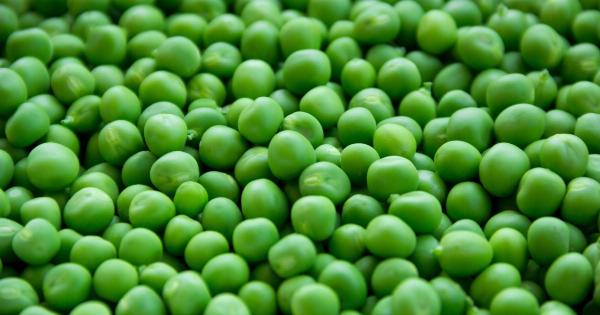Eating vegetables is an essential part of a balanced diet, providing our bodies with the necessary nutrients for optimal health.
However, the manner in which we consume our vegetables can make a significant difference in unlocking their maximum nutritional value. While cooked vegetables certainly have their merits, there is ample evidence to suggest that incorporating raw vegetables into our meals can offer numerous advantages.
In this article, we will explore the benefits of eating raw vegetables compared to their cooked counterparts.
1. Increased Nutrient Intake
Raw vegetables boast a higher nutrient density compared to cooked ones. When vegetables are heated, some of their vitamins, minerals, and enzymes can be lost or significantly reduced.
Heat-sensitive nutrients, such as vitamin C and certain B vitamins, are particularly vulnerable to degradation through cooking. In contrast, consuming vegetables in their raw state ensures that these vital nutrients remain intact, enabling your body to absorb them fully.
By opting for raw vegetables, you can significantly increase your nutrient intake, supporting overall health and vitality.
2. Enhanced Digestion
Eating raw vegetables can contribute to improved digestion and gut health. Raw vegetables are rich in dietary fiber, which is crucial for maintaining a healthy digestive system.
Fiber adds bulk to the stool, promotes regular bowel movements, and helps prevent constipation. Additionally, fiber acts as a prebiotic, providing nourishment to the beneficial bacteria in your gut. A well-nourished gut microbiome supports optimal digestion and absorption of nutrients, reduces inflammation, and strengthens the immune system.
By incorporating raw vegetables into your diet, you can promote a healthy digestive system and enhance your overall well-being.
3. Increased Enzyme Content
Raw vegetables contain enzymes that are essential for various bodily processes. Enzymes are molecules that facilitate chemical reactions within the body, allowing for essential functions such as digestion, metabolism, and cellular repair.
Unfortunately, many enzymes are heat-sensitive and can be destroyed or deactivated through cooking. By consuming raw vegetables, you provide your body with a rich source of naturally occurring enzymes. These enzymes can aid in the digestion and absorption of nutrients, support detoxification processes, and promote overall metabolic efficiency.
4. Improved Energy Levels
Eating raw vegetables can have a positive impact on your energy levels throughout the day. Raw vegetables are rich in complex carbohydrates, which are an essential source of energy for the body.
These carbohydrates are broken down into glucose, providing a steady and sustained release of energy. Unlike processed carbohydrates, such as refined sugars, which can cause blood sugar spikes and crashes, raw vegetables provide a more stable source of energy.
By incorporating raw vegetables into your meals, you can experience improved energy levels, increased focus, and enhanced productivity.
5. Preserved Antioxidant Activity
Raw vegetables are abundant in antioxidants, compounds that help protect the body against oxidative stress and cellular damage.
Antioxidants neutralize harmful free radicals, which are highly reactive molecules that can cause inflammation, aging, and chronic diseases. When vegetables are cooked, their antioxidant content may diminish due to heat exposure. Raw vegetables, on the other hand, retain their natural levels of antioxidants, allowing you to fully benefit from these disease-fighting compounds.
By consuming raw vegetables regularly, you can boost your body’s defense against oxidative damage and promote long-term health.
6. Benefits for Skin Health
Consuming raw vegetables can have noticeable benefits for your skin’s health and appearance.
Raw vegetables, such as cucumbers, bell peppers, and carrots, are rich in vitamins, minerals, and antioxidants that promote vibrant and youthful-looking skin. These nutrients help protect the skin against damage from environmental pollutants and ultraviolet (UV) radiation. Raw vegetables also provide essential hydration, keeping the skin moisturized and promoting a healthy complexion.
By incorporating raw vegetables into your diet, you can nourish your skin from the inside out and achieve a natural glow.
7. Weight Loss Support
Raw vegetables can be a valuable addition to a weight loss or weight management plan. Raw vegetables tend to be low in calories but high in volume due to their water and fiber content.
This means you can consume more substantial portions of raw vegetables while keeping your overall calorie intake in check. Additionally, the fiber in raw vegetables helps promote feelings of fullness and satiety, reducing the likelihood of overeating or snacking on unhealthy foods.
By incorporating raw vegetables into your meals and snacks, you can support your weight loss goals and maintain a healthy body weight.
8. Improved Hydration
Raw vegetables naturally contain high water content, helping to keep your body hydrated. Proper hydration is essential for maintaining overall health and well-being.
Water is involved in numerous bodily functions, including temperature regulation, nutrient transportation, and waste elimination. By incorporating raw vegetables into your diet, you can contribute to your daily fluid intake and support optimal hydration levels. This is particularly advantageous during hot weather or when engaging in physical activity.
9. Enhanced Taste and Texture
Eating raw vegetables can introduce a new dimension of taste and texture to your meals. Raw vegetables often have a crisp and refreshing texture, providing a satisfying crunch that can enhance your eating experience.
The vibrant colors and natural flavors of raw vegetables can also make your meals more visually appealing. Incorporating raw vegetables into salads, wraps, or as crunchy toppings on cooked dishes can add variety and interest to your plate while increasing your nutrient intake.
10. Versatility in Meal Preparation
Raw vegetables offer tremendous versatility in meal preparation, providing endless options for creativity in the kitchen.
Whether you prefer salads, smoothies, raw soups, or vegetable sticks with dips, raw vegetables can be incorporated into a wide range of dishes. The variety of colors, textures, and flavors available from raw vegetables allows you to explore diverse culinary experiences and experiment with new combinations.
Including raw vegetables in your meal planning can help you break out of culinary routines and discover exciting and nutritious meal options.
In conclusion, the benefits of eating raw vegetables versus cooked ones are numerous and significant.
By opting for raw vegetables, you can increase your nutrient intake, improve digestion, boost energy levels, preserve antioxidant activity, support weight loss goals, enhance hydration, and enjoy a wider variety of tastes and textures. Incorporating raw vegetables into your diet allows you to fully benefit from their natural enzymes, vitamins, minerals, and antioxidants, promoting overall health and well-being.
So why not start adding more raw vegetables to your meals and experience the positive impact on your health today?.




























